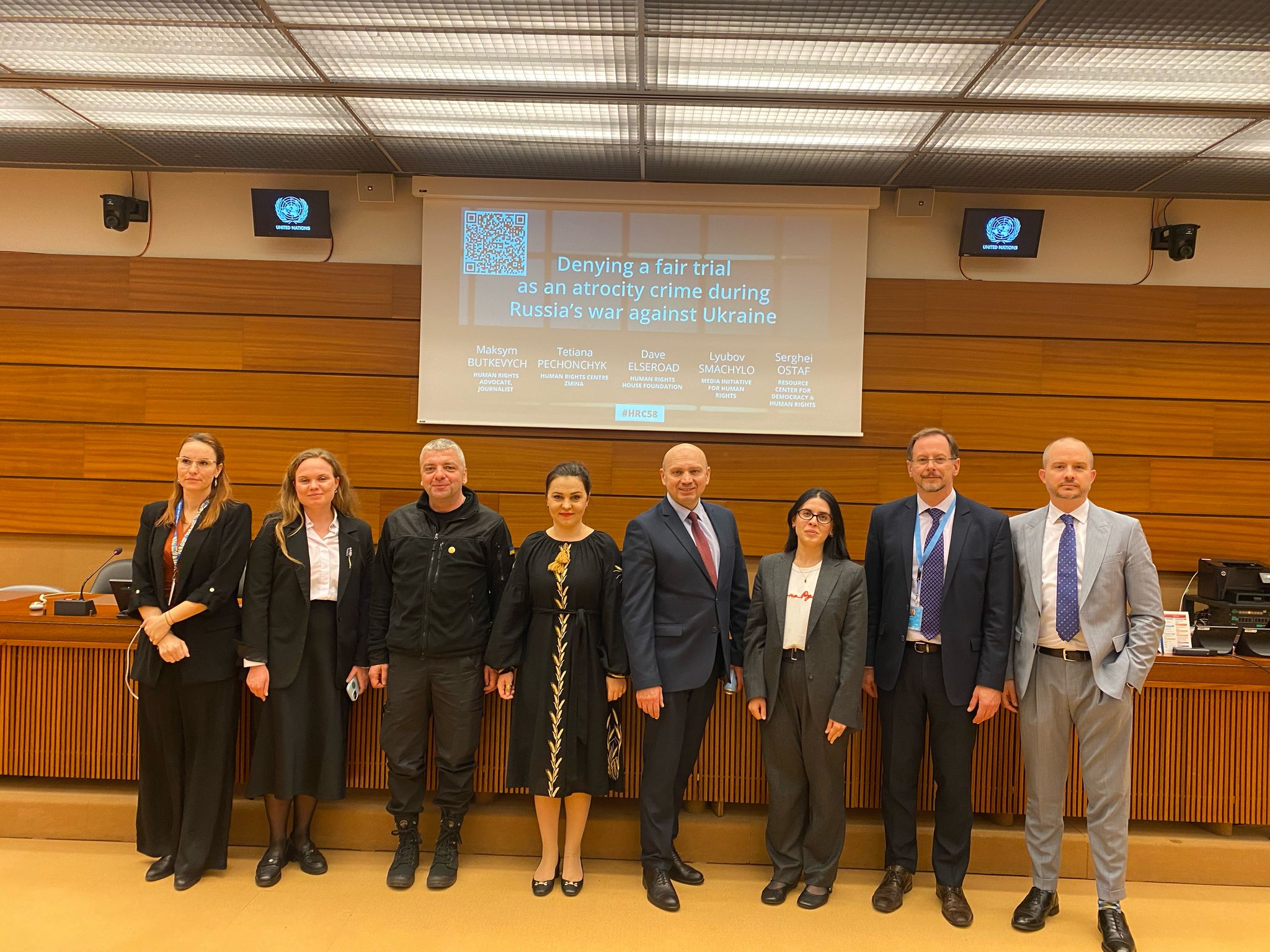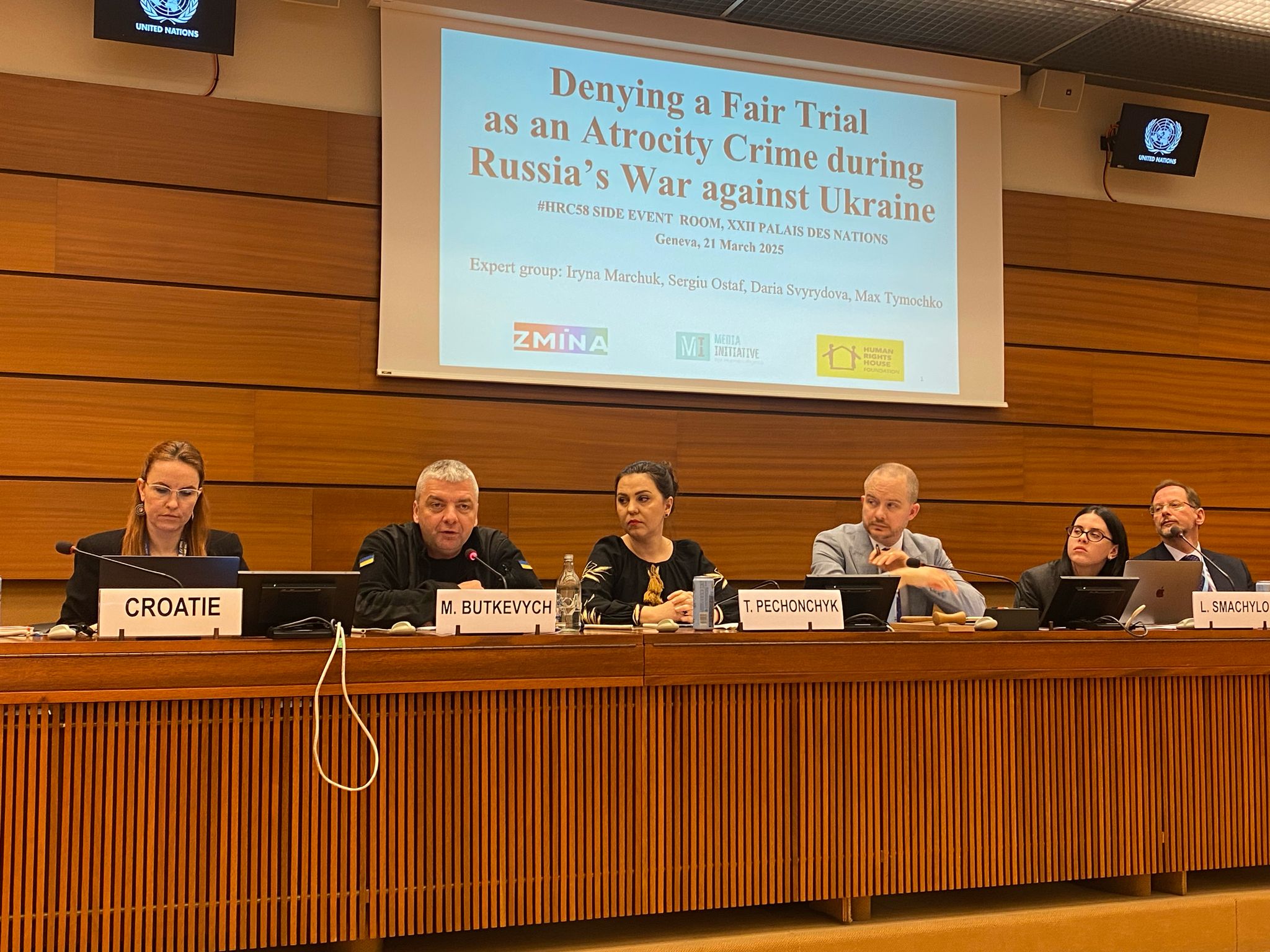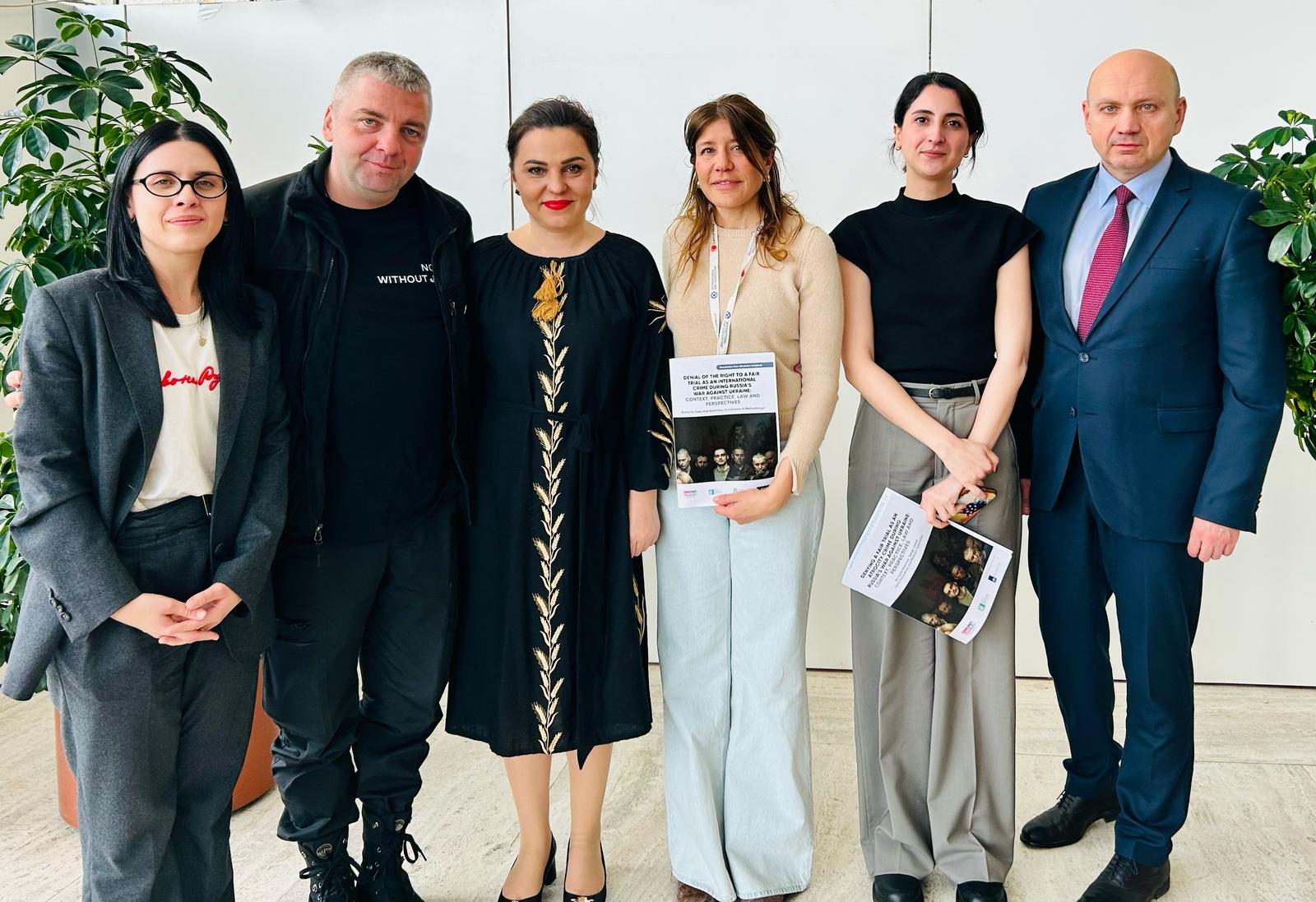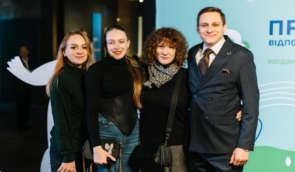Russian trials of Ukrainians as an international crime: ZMINA and MIHR presented research at the UN Human Rights Council
On 21 March, a side event, “Denying a fair trial as an atrocity crime during Russia’s war against Ukraine”, was held in Geneva within the framework of the 58th session of the UN Human Rights Council.

The event was aimed at drawing the attention of the diplomatic community to the widespread practice of denying the right to a fair trial to both Ukrainian civilians and prisoners of war in Russia and the occupied territories. ZMINA and the Media Initiative for Human Rights presented a thematic report prepared in cooperation with the online media outlet Graty and the NGO Crimean Process.
The event was moderated by Dave Elseroad, Head of Advocacy at Human Rights House Foundation. Representatives of the diplomatic missions of Ukraine and Croatia to the UN delivered welcoming remarks.
According to Tetiana Pechonchyk, Head of the Board of the Human Rights Centre ZMINA, the purpose of the research was to collect evidence and study various aspects of Russia’s alleged intentions and policy of judicial persecution, including the denial of the right to a fair trial to Ukrainian civilians and prisoners of war, which has signs of war crimes and crimes against humanity.
In total, the researchers identified approximately 600 cases per the defined criteria and selected 37 representative cases for a more detailed analysis. The researchers also used certain materials from Ukrainian criminal proceedings, criminal cases and verdicts of Russian courts and courts in the temporarily occupied territories (approximately 46 documents in total), victim testimonies, media reports, etc.
“Russian courts and courts in the occupied territories are not independent arbiters. Our research shows that judges, prosecutors and investigators who fabricate cases against Ukrainian civilians and prisoners of war are the same criminals as those who kidnap and torture our citizens. And they must be held accountable for this,” Pechonchyk explained.

One of the researchers, the Director of the Resource Centre for Human Rights (Moldova), Sergiu Ostaf, said that the expert group concluded that the Russian Federation, after the occupation and subsequent attempted annexation of Ukrainian territories, had deliberately created an alternative legal reality contrary to international humanitarian law standards to implement a policy of judicial persecution.
“The Russian-controlled courts ignore the context of the international armed conflict in the cases of Ukrainian civilians and prisoners of war and support the position of the Russian political leadership in the policy of judicial persecution. In addition, the courts in all the territories controlled by the Russian Federation are unable to ensure effective trials in this category of cases due to the absolute denial of the existence of the international armed conflict and the fact of Russian aggression against Ukraine,” he said.
According to him, the results of the research demonstrate systematic and widespread violations of fair trial guarantees in cases against Ukrainian civilians and prisoners of war in Russia and the territories occupied by it. Namely, the equality of the arms, the assessment of evidence, the exclusion of compromised and obtained under coercion or torture evidence, and the right to defence.
“The total secrecy and inaccessibility of such judicial processes to the public, along with violations of the above standards, lead to the fact that courts in such cases largely reproduce the essence of the prosecutor’s charges in their verdicts,” the expert added.
Lyubov Smachylo, Head of the Analytics Department at the Media Initiative for Human Rights, drew attention to the role of Russian propaganda media in the context of violating the right to a fair trial.
According to her, the Russian media outlets play a key role in organising slanderous campaigns against Ukrainian civilians and prisoners of war who were on trial. The Russian media often portrayed the defendants as “terrorists”, “extremists”, “murderers of innocent civilians”, etc.
“Propaganda resources portray Ukrainians as a potential existential threat to the Russian Federation, which leads to systemic violations of the presumption of innocence and justifies Russia’s punitive actions against dissenters,” she said.

Maksym Butkevych, a human rights defender, journalist and former prisoner of war who spent more than two years in Russian captivity, shared his story of persecution. He was unjustly convicted in a fabricated criminal case on charges of committing a war crime and was sentenced to 13 years in prison. Butkevych was released in October 2024 during an exchange of prisoners of war between Ukraine and Russia.
According to Butkevych, his case is not unique – during his time in the colony in the occupied territory of the Luhansk region, he was held with four dozen other Ukrainian prisoners of war, against whom the occupation authorities also fabricated criminal cases.
Human rights defenders reported that the full version of the research will be published on 31 March, along with its presentation in Kyiv.
As previously mentioned, this research was presented in December 2024 in The Hague during a special event at the Assembly of State Parties to the International Criminal Court.
The research was supported by the Ministry of Foreign Affairs of the Netherlands.
If you have found a spelling error, please, notify us by selecting that text and pressing Ctrl+Enter.















